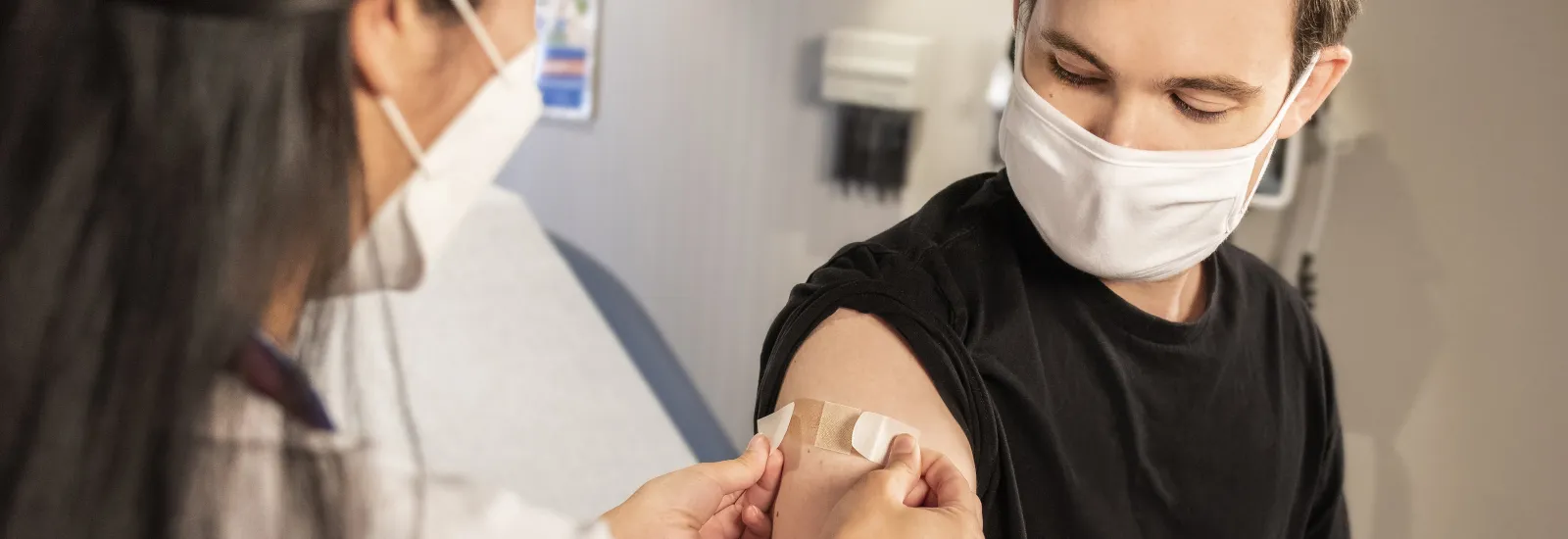
The Pfizer COVID-19 vaccination is safe for kids 12-17 and protects them from serious illness.
According to a recent
report by the American
Academy of Pediatrics (AAP) and the Children's Hospital Association (CHA),
nearly 4 million children were diagnosed with COVID-19 as of July 1, 2021,
which accounts for 14% of all cases. As more restrictions are lifted
children will be returning to in-person learning, sports and other
extracurricular activities. Unfortunately, with only 49% of the United States
population vaccinated, kids are still at risk.
Even with safe, effective options available,
some concerned parents still are
hesitant to vaccinate their children.
GET THE FACTS -THE PFIZER COVID-19 VACCINE IS
SAFE FOR KIDS
There is a great deal of
misinformation regarding the safety of
the vaccines, particularly in children 12-17 years old, but correctly administered, it is
safe and effective. Concerns ranging from severe side effects to fertility
difficulties have flooded the internet.
Dr. Hira Ahmed is a physician with
Reid Pediatrics and Internal Medicine. Her practice focuses on caring for
children from birth through age 21 and she is confident the vaccinations are
safe and necessary.
"The COVID vaccine does not make anyone
sterile. If you choose to get pregnant one day, it is safe to go ahead and get
vaccinated now," Dr. Ahmed explained. "If you are currently pregnant, there is
no evidence to this point that it alters the placenta or affects the pregnancy
in any way." The CDC
agrees, it is indeed safe to get pregnant after receiving the Covid-19 vaccine.
Some people are also concerned that
the mRNA-based vaccines will change the
structure of our genetic material, but that is incorrect. Because the vaccine
does not enter the nucleus of human cells, it cannot alter DNA. As with many
medications, however, some side effects have been reported, such as pain,
swelling and redness at the site of the injection, which, according to Dr.
Ahmed is typical for most vaccines.
"Some children may develop a flu-like
syndrome with body aches, fatigue, headaches, nausea, and fever for 1-2 days
post vaccination," Dr. Ahmed said. "This is a side effect that I find is actually
helpful because it shows immunization is
effective and the vaccine is doing its job." Symptoms typically resolve without
long-term issues.
There have also been some rare cases
of myocarditis, an inflammation of the heart muscle, following COVID
vaccinations in children over the age of 16. The investigation is ongoing,
however, out of the millions of vaccines issued, only
about 1,000 cases of heart inflammation have been reported out
of 300 million doses of the Covid-19 vaccine and providers agree the benefits of
preventing a COVID-19 infection far outweigh the risk.
For children below the eligible
vaccination age of 12 years old, the Centers for Disease Control and Prevention (CDC)
recommends they wear a mask in public places or around anyone they do not know.
More information on CDC guidelines for children, visit https://www.cdc.gov/coronavirus/2019-ncov/vaccines/recommendations/adolescents.html
Reid Health providers continue to
recommend vaccines for adults and children alike so they can go back to school
and resume social activities safely. But if there are still questions,
concerned parents should talk to their child's pediatrician.
If your child is not currently
registered with a provider, locate a Reid Health
Pediatrician near you or request
an appointment . Learn more about Reid Health pediatric services.

